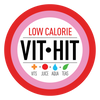Summer is almost here, hooray! Summer in Ireland is not always reliable, but we can be sure to expect some sunshine (fingers crossed).
Longer daylight hours means that we have an increased opportunity to soak up some sunshine. Increased exposure to sunlight equates to increased production of vitamin D by the skin. In Ireland, due to our position relative to the sun (the solar zenith angle, if we want to get technical about it), we experience a ‘vitamin D winter’ for at least 6 months of the year. From March to late September, due to longer hours of daylight and sometimes sunshine, we have an increased chance of our skin synthesizing vitamin D.
Vitamin D - which is actually a hormone, is also known as the sunshine vitamin. It is produced endogenously when the skin is exposed to UV rays found in sunlight. A number of different things pertaining to the skin affect its ability to synthesize vitamin D. These include; melanin (skin pigment), sunscreen use, aging, time of day, season and the latitude of the country you’re in. Contrary to this, it is not possible to produce excess vitamin D from exposure to sunlight. Melanin (pigment in the skin), competes with vitamin D, so not all vitamin D that is synthesized is converted to bioactive vitamin D form. Thus, no more than 10-20% of vitamin D that is produced on the skin will actually be converted to pre-vitamin D; the bioactive form of vitamin D. This allows for the regulation of vitamin D production and as such too much will never be produced.
Vitamin D; a fat soluble vitamin, helps the body absorb calcium in the gut and maintain normal serum calcium and phosphate levels in the body. This promotes the normal breakdown and growth of bones. Without prolonged consumption or production of adequate levels of vitamin D, deficiency can result. In early life, children with a vitamin D deficiency can develop rickets. In adults, deficiency can lead to osteomalacia.
Vitamin D is thus incredibly important for bone health and deficiency has been linked to other bone diseases namely, osteoporosis, osteopenia and increased risk of fracture.
During Covid-19, vitamin D was largely promoted as it reduced the severity of symptoms of the virus.
Vitamin D requirements:
- Babies <5 months require 10mcg of vitamin D but only if they are breastfed or if their infant formula has not been fortified.
- Children between the ages of 1 and 4 require a 10mcg of vitamin D from October to March (vitamin D Winter).
- Everyone else requires 400IU or 40 mcg of vitamin D per day.
Vitamin D can be obtained from supplements, food and sunlight. Supplementation is most important during October to March, depending on the skin's exposure to sunlight.
Although it is important that we try to make as much vitamin D via sunlight, remember that we must also protect our skin from too much exposure to sunlight as this may lead to skin damage and skin cancer.
It is also possible to get vitamin D from food. Foods that contain small amounts of vitamin D include:
- Oily fish eg. salmon and herring
- Egg yolks
- Red meat
- Foods that have been fortified with vitamin D eg. cereals
There are a number of groups who are at risk of not synthesizing enough vitamin D. These include; people who are not often outdoors eg. frail or housebound individuals, people who have to cover us for religious purposes / choose to wear clothes that cover most of your skin when outdoors, have a dark skin tone or are in a care home. It is recommended that these individuals in particular supplement their diet with 10 mcg of vitamin D all year round.
As previously mentioned, it is not possible for your skin to make too much vitamin D. However, it is possible to consume too much vitamin D via supplements. Excessive vitamin D consumption via supplementation can result in hypercalcaemia. Hypercalcaemia, by definition, is the buildup of calcium in the body over a prolonged period of time. This can cause damage to organs like the kidneys and heart and potentially damage bones. It is thus recommended that adults and children aged over 11, do not take any more than 100mcg of vitamin D per day.
It is recommended that you consult your doctor before making any major dietary changes. Similarly if on medication, it is important to check that it is safe to take supplements of vitamin D as some can interact with medication.
References:
NHS UK: Vitamin D; https://www.nhs.uk/conditions/vitamins-and-minerals/vitamin-d/
NIH : Vitamin D; https://ods.od.nih.gov/factsheets/VitaminD-HealthProfessional/
Vitamin D: A lightful solution for health, Michael F. Holick : https://www.ncbi.nlm.nih.gov/pmc/articles/PMC3738435/












